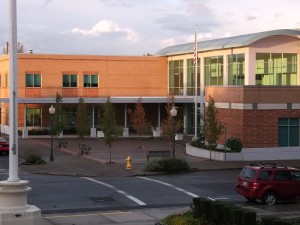Voters in Albany almost cost themselves an extra $5.6 million, but the city administration deftly saved them from that expensive mistake.
The mistake was to approve a debt limitation in the city charter, which ostensibly requires voter approval of any new debt even if property taxes are not pledged to repay it. If the city had waited for the election on the amendment, it could not have refinanced $30 million remaining on a $40 million water bond issue. But it did refinance that debt, and the new bonds were sold on Feb. 28. The finance director, Stewart Taylor, says this will save $5.6 million in interest over the next 20 years and lower annual bond payments by $300,000, which should help slow the rise in water rates.
None of this would have been possible without another special election under the charter amendment, and perhaps not even with an election if indeed, as the city attorney believes, the amendment requires approval by more than 50 percent of all city voters, a percentage never reached.
The council had previously thought of asking a court to determine whether the amendment — if it passed — was properly adopted under the state constitution, which says any measure requiring a supermajority must pass by the same supermajority, which this one didn’t. But going to court to thwart the voters would surely anger the 4,825 voters who backed the measure. The council, which must officially “canvass” the election results and has 30 days to do so, may have a better way to proceed. It could declare the measure to have passed and add it to the charter while expressing doubts about its validity, and then let events take their course.
Suppose the city later had a chance to refinance its $60-plus million debt to the state for the sewage treatment plant by selling revenue bonds, saving further millions in interest. But if the new charter amendment prohibits that, voters might conclude that passing the amendment was not exactly a smart move.(hh)
One of the rules when interpreting a legal document is to use the ordinary meaning of words. The measure requires voter approval of “new” debt. A common sense application of the word “new” means debt that didn’t exist before. It is debt that is appearing for the first time. Refunding bonds are not “new” debt. Refunding bonds are a replacement of an existing debt under more favorable terms. It’s like refinancing a mortgage. It’s not a “new” debt appearing for the first time to the homeowner. It’s a “replacement” debt.
The election is over. The city doesn’t have to campaign anymore using an absurd interpretation of the measure to win votes. It is now time for the city to use common sense instead of campaign sense.
We are on record stating the measures would not have restricted re-issuing existing debt instruments to save money. What the city did was exactly what we wanted to happen — reduce the cost of government and NEW debt must be approved by the voters.
The measure does NOT/never has required a super majority going forward. The debt measure passed by a simple majority and by state law will only require a simple majority to approve new additional debt proposals by the city council.
It is now clear that the council was attempting to influence the vote by their earlier public disclosure resolution to litigate if the measure passes. That attempt was seen as dirty politics by many voters and it back-fired.

